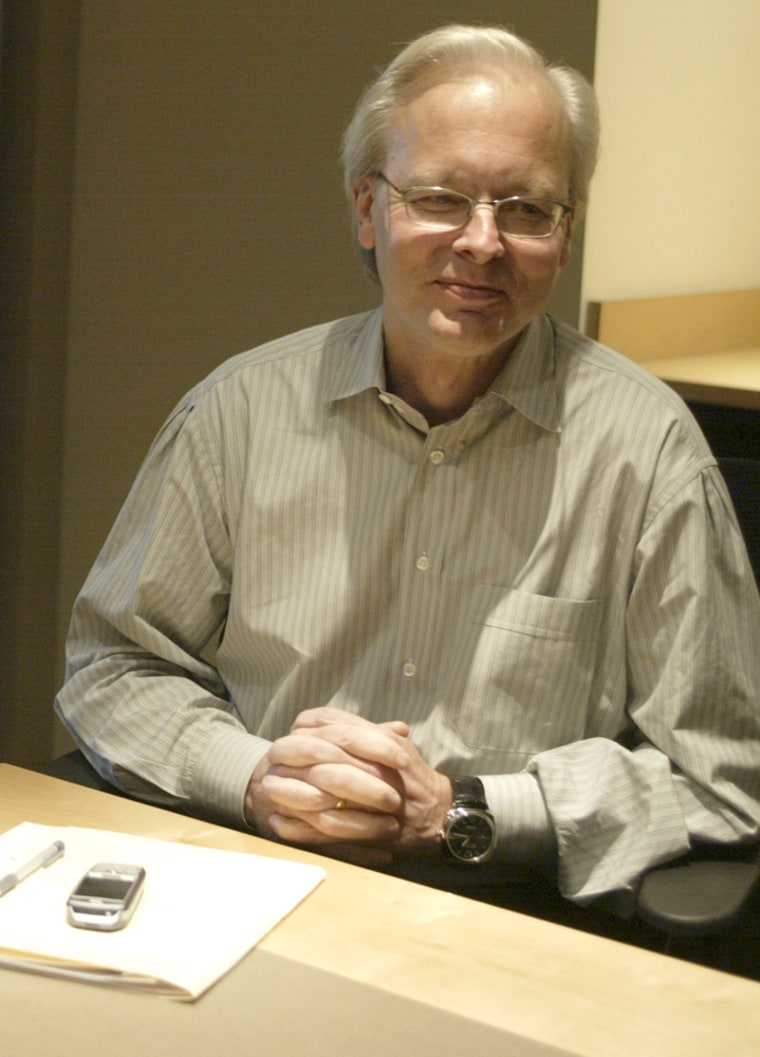The departure of Bill Gates as Microsoft's technology czar puts a heavy load on the shoulders of Ray Ozzie, his replacement as the company's chief software architect. Ozzie, while highly respected, has been with the company only for one year, so he doesn't have the cult-hero status of Gates to help him resolve internal conflicts and rally the troops around a new initiative. But industry observers say he has the management skills to bring much-needed discipline to the vast software development organization and he has a fresh perspective that might make Microsoft, a more innovative company.
While investors may fret that Microsoft is losing Gates' golden touch, in fact the company may actually be better off now. That's assuming Ozzie can get new ideas percolating in a company that still relies on its aging Windows and Office monopolies for most of its profits — and has been forced to play catch-up to Net browser pioneer Netscape in the 1990s and search leader Google in recent years. “All in all, I see this as a net positive for Microsoft, for its employees and its shareholders,” says Mark Anderson, president of Strategic News Service, a leading tech industry consultancy.
Already Ozzie has had an impact. His Oct. 28, 2005, memo to Microsoft's executive staff was a call to arms in a major strategic push into a new generation of online services, called Microsoft's Live services.
“The world of online services and software-as-a-service has been passing Microsoft by, and I credit Ozzie with getting the company more fully in the game,” says analyst Dwight Davis of tech market research outfit Summit Strategies.
Acquiring Ozzie
Ozzie enjoys a reputation as one of the PC industry's most celebrated innovators. Most notably, while chief executive officer of software startup Iris Associates in the 1980s, he brought to market the first popular desktop collaboration software, Notes, which now is used by approximately 125 million office workers worldwide. Iris was acquired by Lotus Development, which was later bought by IBM. More recently, Ozzie started Groove Networks, a maker of Web collaboration software and services that made it easy for people to work on projects together even if they weren't at the same company.
Microsoft bought Groove last year—in part to secure Ozzie's services. He was immediately appointed chief technology officer. “We wanted the technology but also we had wanted to work with Ray for 20 years,” Microsoft Chief Executive Steve Ballmer said at the press conference announcing the transition. Ozzie himself could not be reached for comment.
Here's how Microsoft is shifting around its technology leadership: Ozzie takes over the chief architect job immediately, but continues to report to Gates for the first year of the transition. He's in charge of the technology vision of the company and responsible for keeping all of the product groups aligned. Craig Mundie, a longtime Microsoft executive, is taking charge of the company's intellectual property policy decisions and Microsoft Research, which does basic scientific research. Both men will begin to report directly to Ballmer starting a year from now, though Gates will continue to sit in on meetings.
Sharing credit
Gates says his role as the technology genius at Microsoft has been greatly exaggerated. “There has been a disproportionate amount of attention on me, but in reality there has been an incredible amount of technical talent at Microsoft,” he said at the press conference. In particular, he praised J. Allard, who has been a leading light in Xbox game console technology, and Bob Muglia, who runs development in the computer and server tools business.
In fact, analysts say Gates deserves part of the blame for mistakes and delays in the next version of Windows, called Windows Vista. Microsoft had been working on a successor to Windows XP ever since its introduction in 2001, but an overly ambitious list of proposed new features and problems with the basic structure of the technology caused the product to be delayed for years. While business versions are scheduled for release late this year, consumer versions aren't expected until sometime next year.
Could Ozzie have done any better? Some analysts believe so. “It will be a very good thing to have Ozzie in this role,” says Tim Bajarin, president of tech market researcher Creative Strategies. “He is a very methodical person who sees both the whole picture of a project clearly and also understands how to manage it efficiently.”
Open standards
Others believe Ozzie will move Microsoft in the direction of becoming a better industry citizen. It depends on its proprietary technologies in Windows and Office at a time when the industry is increasingly embracing open standards. Microsoft has made some tentative moves in that direction as well, but only fitfully. Many see the shift as inevitable. “In the end, I don't think Microsoft will have any choice but to continue down the path to open-standards support and I think it's possible that Ozzie may be more willing than Gates and some others at Microsoft to accelerate that process rather than resist it,” says Davis of Summit Strategies.
Not everyone praises Ozzie. One industry executive who asked not to be identified called Ozzie “massively overrated.” He pointed out that it took Ozzie and Iris many years to develop Notes, a mammoth project that has complexity issues much like those of Windows and Office. And, just when Notes was gaining strength in the market, the Web came along to make its technology foundation obsolete. When IBM took over the product through its acquisition of Lotus, Notes had to be substantially retooled.
Don't expect Ozzie to push Microsoft too far out of its familiar groove. He's unlikely to make a radical break with the company's intense focus on the lucrative Windows and Office monopolies. But if he can spark even more creativity in the online sphere, the company's shareholders will be better off.
